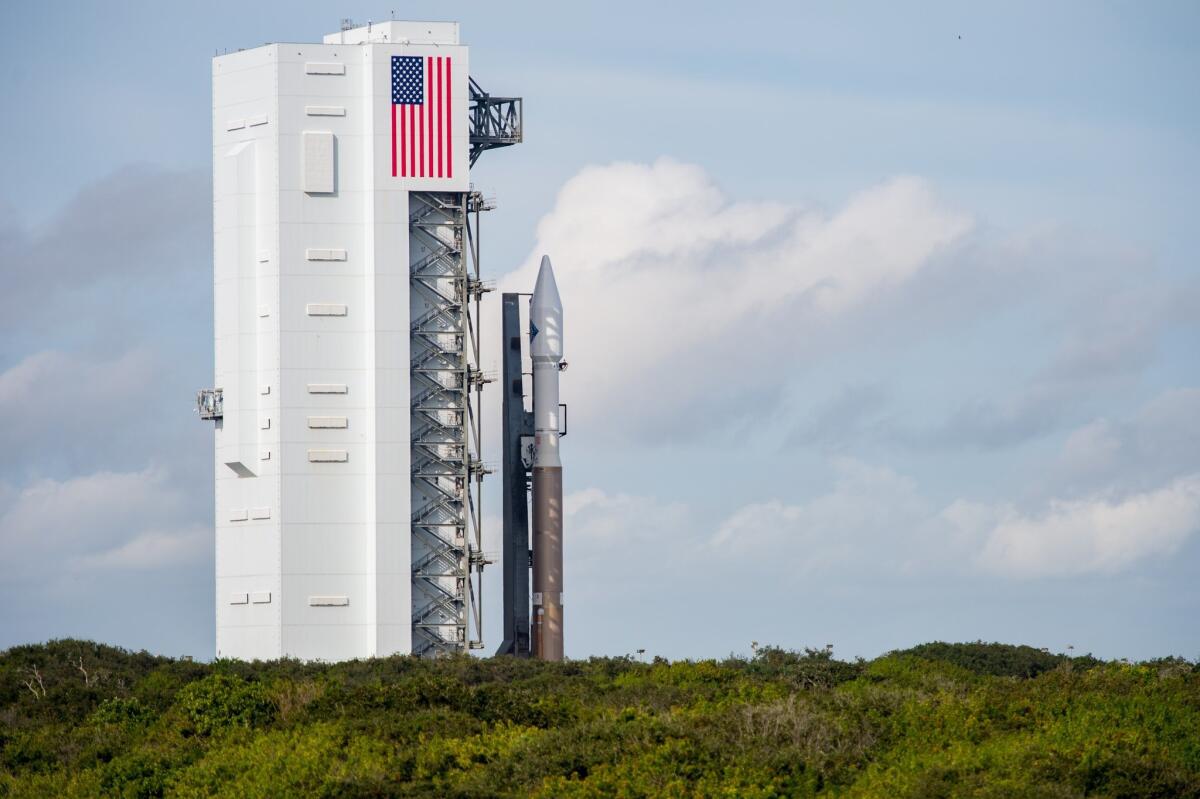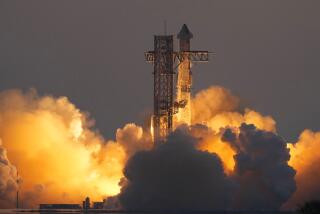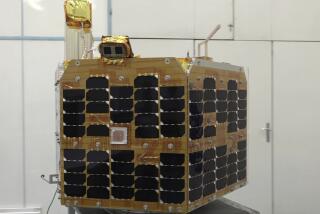Orbital ATK launches supplies to International Space Station

The United Launch Alliance Atlas V rocket with Orbital ATK’s Cygnus spacecraft onboard on Wednesday at the Cape Canaveral Air Force Station in Florida.
- Share via
Aerospace firm Orbital ATK blasted a rocket loaded with cargo to the International Space Station on Sunday – its first since a fiery disaster on a similar mission 13 months ago.
“Picture perfect ascent,” said the launch control announcer at Florida’s Cape Canaveral after liftoff at 1:44 p.m. Pacific.
The launch was America’s first attempt to ship supplies to the space station since a rocket operated by NASA’s other cargo-hauling contractor, SpaceX, disintegrated soon after liftoff on June 28.
The two failures cost taxpayers hundreds of millions of dollars and left NASA dependent on supply missions flown by Russia and Japan.
Both NASA and Orbital have blamed the Oct. 28, 2014, failure on the turbo pump in one of the rocket’s 40-year-old Soviet engines.
On Sunday, Orbital flew its Cygnus cargo capsule on a rocket built by United Launch Alliance, a joint venture of Boeing Co. and Lockheed Martin Corp.
The joint venture’s Atlas 5 rocket has launched dozens of satellites, but has never flown to the space station.
After being delayed three days by bad weather, Sunday’s launch happened with few apparent glitches.
The Cygnus spacecraft is expected to arrive at the space station on Wednesday.
Orbital, which has headquarters in Dulles, Va., recently redesigned the Cygnus capsule so that it can carry more cargo. Under its contract with NASA, it must deliver 62,000 pounds over 10 missions, according to the company.
On Sunday, the Cygnus was loaded with 7,400 pounds of equipment, experiments and supplies for the station’s astronauts. That load is just shy of the combined weight of all the cargo the company’s rockets have carried to the space station so far in two previous successful missions as well as a third demonstration flight.
On last fall’s disastrous mission, Orbital’s ship was carrying about 5,000 pounds of cargo. All of it was destroyed.
NASA decided to hire two contractors to haul cargo with the goal of always having one ship available if one of the firm’s rockets failed. The agency’s strategy has met increased scrutiny in recent months with both companies’ ships grounded.
An internal NASA review in September faulted the agency’s handling of the cargo contracts. NASA’s Office of Inspector General said the agency had written the contracts so that most of the cost of a launch disaster fell to taxpayers.
Under the contracts, the companies aren’t required to re-fly a mission if it fails and they still receive all but 20% of the contract’s price per flight. The companies are also not liable for any lost cargo.
The inspector general noted that NASA had already paid Orbital $1.6 billion of the $1.9 billion contract even though the company had only twice succeeded at carrying cargo to the space station.
In October, a NASA team reviewing the Oct. 28 failure faulted Orbital for not adequately testing the engines before the flight.
NASA’s review team found that the explosion occurred in the turbo pump of one of the rocket’s two Soviet-era engines. But the team said it could not determine whether the problem came from a flaw in the engine’s design, a manufacturing defect or because foreign debris had been left inside.
Follow me on Twitter @MelodyPetersen
ALSO
Consumers may sue farmers who falsely label their products as organic, court rules
Treatment for high cholesterol is widely neglected
Regulators fine Edison $16.7 million for secret San Onofre talks
More to Read
Inside the business of entertainment
The Wide Shot brings you news, analysis and insights on everything from streaming wars to production — and what it all means for the future.
You may occasionally receive promotional content from the Los Angeles Times.











